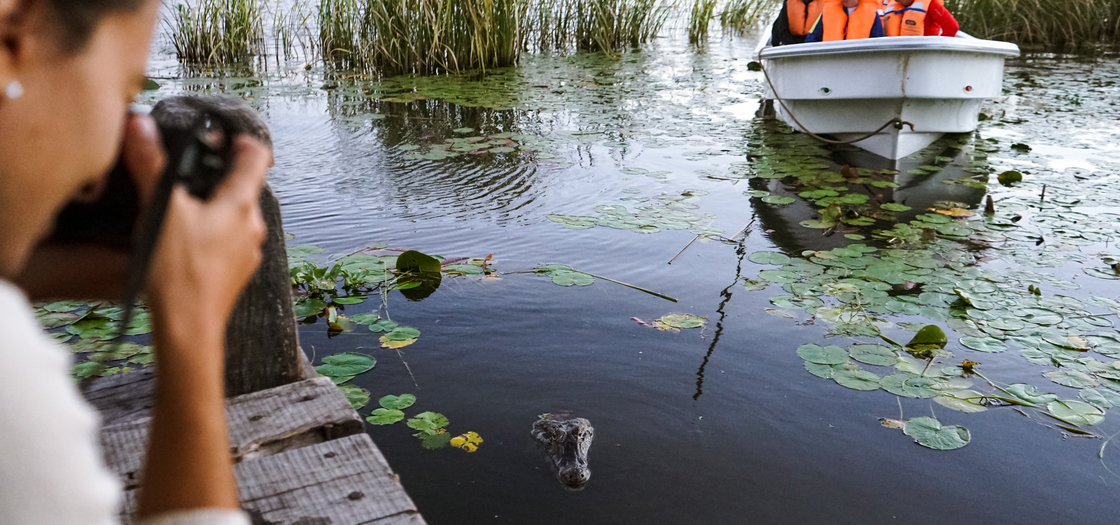Buenos Aires Sustainability Program

This program was offered in Summer 2025 and is not being offered for this upcoming year.
The Buenos Aires Sustainability Summer Program is an opportunity to study intensely on the South American continent! The seven-week program is designed to integrate travel, classroom learning, and purposeful engagement with local and regional leaders to help students better understand the challenges that anthropogenic climate change poses to those in Argentina as well as creative solutions being formulated by those in South America. Students will likely travel to Iguazú Falls, a yerba maté farm, and Tigré, among other places, in order to understand more fully biodiversity conservation schemes, indigenous ways of farming, and the impacts of sea-level rise.
The Buenos Aires Sustainability Summer Program is designed for:
- Students pursuing Sustainability majors and minors (open to all!)
- Note: Students of all majors may apply to this program
- Students who desire to understand the consequences of anthropogenic climate change on other regions of the world
- Students who desire to learn about sustainability with other like-minded and passionate students
Check Out the BA Sustainability Program Student Experience!
Program Dates
May 11, 2025 - June 28th, 2025
Dates above indicate a planned departure date from the US and in-country return departure date.
Costs
Health and Safety
Visa Information
Reference Checklist
Course Requirements and Offerings
Refer to the academics page for details on the minimum unit requirements and class pre-requisites for the program. Textbook lists will be provided by the program staff.
Faculty-in-Residence

Dr. Chris Doran
Professor of Religion & Sustainability
Coordinator of Sustainability Program
Religion and Philosophy Division, Seaver College
Chris Doran was born and raised in the San Francisco Bay Area in California. He went on to Seaver College at Pepperdine University to study biology. After receiving a bachelor's degree in biology and then a Master of Divinity from Pepperdine, he went off to Berkeley to study the intersection of theology and science. He returned to his alma mater in 2007 as a faculty member in the Religion & Philosophy Division. After acknowledging that climate change is the most significant issue facing the future of human civilization, he created the Sustainability Minor in 2016. He then created the Sustainability Major in 2021. The Sustainability Program is the largest multidisciplinary program in the history of Seaver College.
His most recent book is Hope in the Age of Climate Change: Creation Care this Side of the Resurrection, which looks to understand how the resurrection of Jesus should inspire us to be leaders rather than followers in solutions to climate change and other sustainability challenges. His current research project seeks to articulate a Christian theological response to both human and nonhuman migration and displacement due to the climate crisis.
Doran has spent considerable time in New Zealand in the past few years, which led him to create the sustainability study abroad program in Kaikoura. He took Seaver students to the South Island in 2018 and 2019. He has summited Mt. Fyffe three times, including once in the snow and believes that the bluff overlooking Point Kean is one of the most beautiful spots in the world. He is an avid runner, having completing 7 marathons and numerous half-marathons. As a certified scuba diver, he spends as much time underwater as he is able.
Finally, Doran has been a friend, supporter, mentor, minister, and advocate for many of his LGBTQ+ students over the years. He has led numerous club convos on LGBTQ+ topics from a Christian perspective, gave the first 3-day lecture on LGBTQ+ concerns in the history of the Pepperdine Bible Lectures, works regularly with Centerpeace, and has given advice to numerous churches on LGBTQ+ matters.